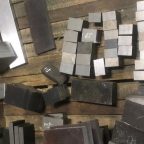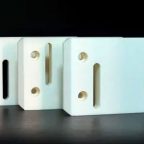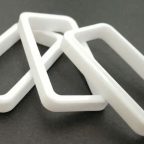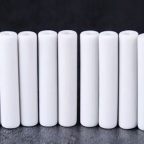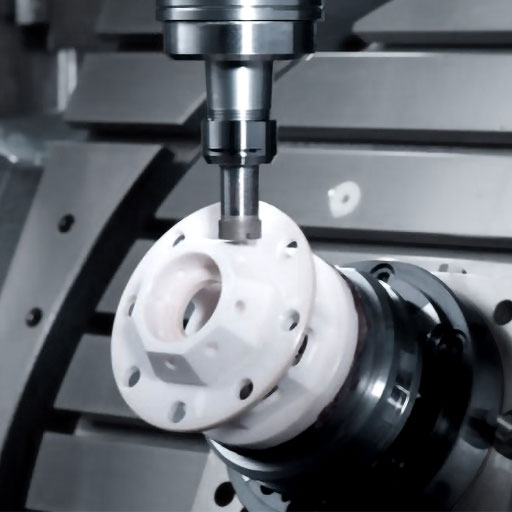China is a big country with a long history of producing ceramics. From the very beginning, human beings realized in practice that clay mixed with water has a certain plasticity and can shape a certain shape of utensils. Beginning with the ancient and simple molding process, the molding process of ceramics has been With the development of ceramics, it has gradually evolved, from low-level craftsmanship to high-level craftsmanship, such as the early kneading molding or partial molding, and later the development of using clay strips and clay plates to shape and so on. With the continuous updating of modern art forms, creative ideas emerge in an endless stream, but there is a lack of diversity in modeling techniques and forms of expression.
For current ceramic modeling, understanding and mastering the molding process can enrich the expression of modeling, and also introduce new technical guarantees . In recent years, people have paid more and more attention to the pursuit of individuality and the return to a natural and simple life atmosphere. The characteristics of ordinary individuals that are different from other personalities make people have different tendencies to pursue specific forms such as culture and art. The difference in personality is actually a multiple developmental problem of various designs based on a certain standardization. When extended to ceramic design, it refers to the performance problems under the requirements of modeling, materials, glaze color, and aesthetics. Modeling is the primary factor of ceramic art and the basic form of the existence of ceramic utensils, and the molding process is the technical support for modeling.
Only by mastering the molding process can new design elements be injected into the process of modeling and create richer and more beautiful. ceramic shape. As a representative technique of the molding process, the ceramic mold molding process is an indispensable part of the ceramic molding technique. Compared with other molding processes, its characteristics of reproducibility attract the attention of ceramic workers or enthusiasts. The requirements of people’s personal practice provide people with conditions and opportunities to give full play to their creativity, meet the interests of producers who pursue economic results, and obtain maximum benefits on the basis of mass production.
At the same time, the artwork of the mold forming process also brings It gives people different and unique aesthetic concepts, reflects the design concept of ceramic creators, and also conforms to people’s artistic aesthetic pursuits. Mold molding process is an important means of relying on ceramic modeling. Mold molding endows ceramic modeling with the development trend of diversity, and its importance in molding techniques is gradually revealed. The ceramic production in everyone’s impression is only seemingly simple manual labor. By briefly describing the development of mold forming techniques, people have a new understanding of the artistic language of ceramics. At present, in ceramic molding, the application of mold forming process is becoming more and more common. Ceramic enthusiasts who are new to mold forming will think that it is difficult to a certain extent. It has been transformed into an excellent method for our modeling services. Among many ceramic products, we can see products that rely on the mold molding process, and household utensils are the most common example.
- First, the angle of process characteristics Any design language has its unique artistic characteristics, and the mold forming process is no exception. Through on-the-spot investigation, observation, interviews and other forms, the usual mold forming process is systematically summarized, and the unique artistic characteristics of the mold forming process are extracted, which is widely practical, general social, exquisite artistry and scientific development. By discussing these aspects, you will have a more systematic understanding of the development of the mold forming process. the first
- Second, from the perspective of artistry and its artistic value, ceramic mold forming is not only limited to a physical activity, just like a tool for making ceramics is not just a simple tool, it also has a sense of formal beauty, which is more rich in simplicity. Tools for people’s creativity. The ceramic mold forming process integrates the factors of wisdom in the creative process and recognizes the existence of its functional value.
The function of a product is multi-faceted and multi-layered. Through the use of ceramic mold forming technology by ceramic artists and industrial production, we consider the main functional value of the mold forming process, and whether to take into account the other artistry it undertakes. We should pay attention to reflect the difference between mold molding and the particularity of other molding processes, the relationship between early ceramic artists and the rational application of industrial production, and the multiple artistic values created. The unique image of the mold is presented to the public through the molding process; the uniqueness of the mold molding process makes the created works of art also have unique charm characteristics, bringing a new aesthetic perspective. Under the aesthetic pursuit of art and life, the two develop each other. ; Studying the artistry of mold forming and its artistic value can bring new ideas to our ceramic creation and production and enhance the value space.
Pintejin machining ceramic service include : Alumina Ceramic Parts, Zirconia Ceramic, Silicon Carbide Ceramic, CNC Machined Aluminum Nitride Ceramic, Machinable Ceramic Parts, Glass Ceramic,Macor Ceramic,Powder Metallurgy Dies,Ceramic Injection Molding,Ceramic Dry Pressing,Ceramic Extrusion Dies
